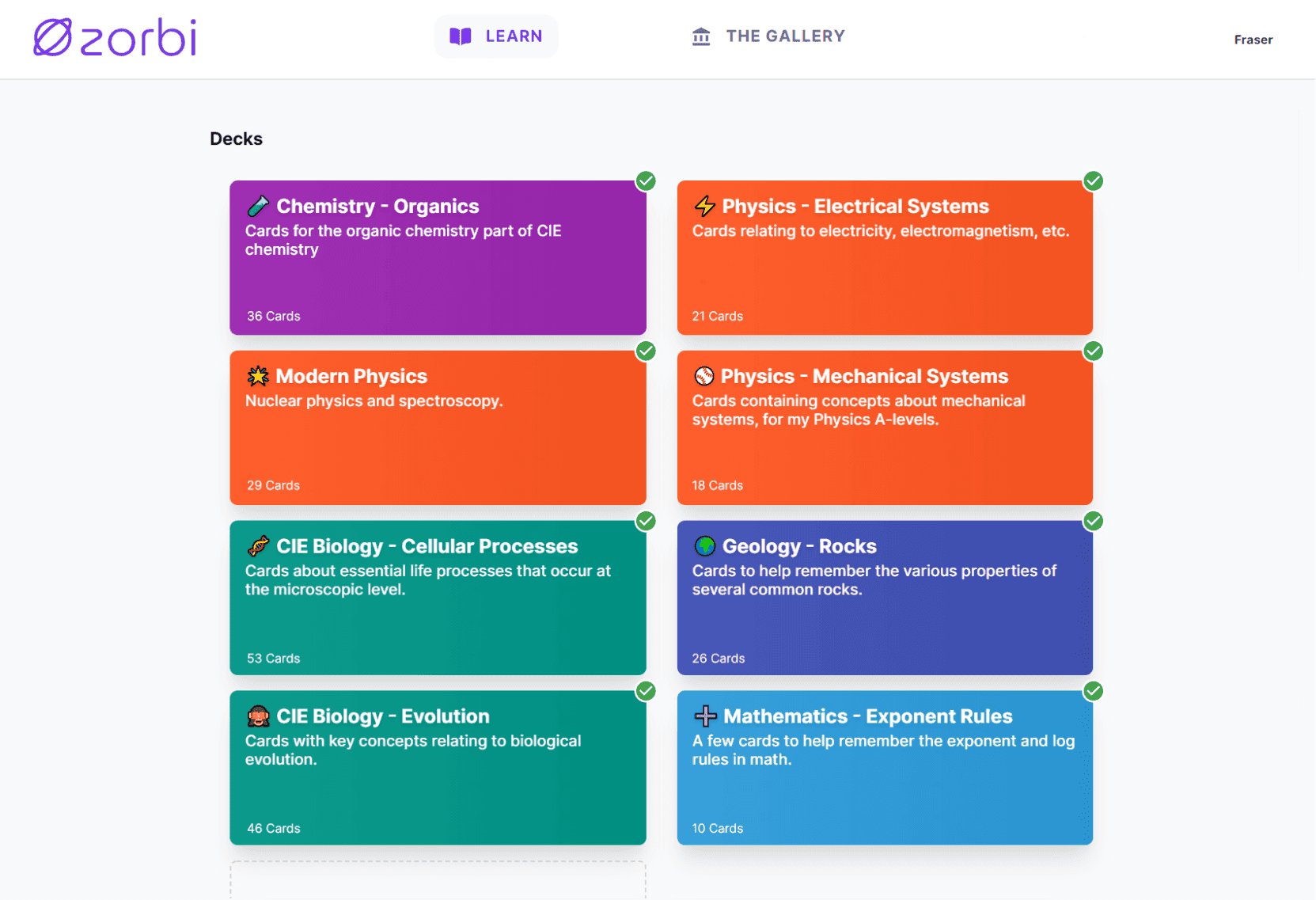Make studying significantly faster through
active recall and spaced-repetition
The key to surviving in an ever more rapidly changing and complex world is learning how to learn.
~ The promise and perils of self-regulated study (Kornell and Bjork, 2007)
Does it feel like you spend hours studying but you're just not getting anywhere?
Don't worry, you're not alone. research has found that most high school and university students are studying using ineffective study techniques because they were never taught how to learn.
The Solution: Spaced Repetition and Active Recall
Over the past 50+ years of learning science, researchers have found that the two most effective methods of study are spaced repetition and active recall.
Active Recall is the act of strengthening memory through the retrieval of information from memory. This can be done through flashcards, past papers, and practice quizzes.
Spaced Repetition is used to describe the process of relearning information across multiple sessions spread out across days or weeks. For example, you might resit the same practice test 3-days apart to strengthen your memory.
Spaced repetition is most commonly used with practice questions or flashcards.
Spaced-repetition tools like Zorbi work by showing you a question and getting you to recall the answer in your mind. If you answered the card correctly, then you'll see it less frequently; If you answered it incorrectly, it'll show up more often.
But, why doesn't everyone study this way?
Existing spaced-repetition tools haven't taken off because they're clunky, difficult to use, and you have to spend hours learning how to initially use them.
Zorbi was born out of university research that investigated the obstacles preventing the widespread adoption of spaced-repetition. We soon realized that existing platforms were tackling this problem incorrectly.
That's why we created Zorbi - a user-friendly, efficient and effective tool for studying.
With Zorbi, spaced-retrieval becomes easy to use. We make it easy to create flashcards from PDFs and websites and we seamlessly integrate with your favourite note-taking tool, Notion.
| Technique | Description | Effectiveness |
|---|---|---|
The techniques behind  | ||
| Practice Testing (active recall) | Testing yourself using questions (e.g. flashcards, practice tests) | High |
| Distributed Practice (spaced repetition) | The act of spacing out repeated 'practice testing' across days or weeks. | High |
| Interleaved Practice | Mixing different kinds of problems or materials in a single study session. | Moderate |
| Self-Explanation | Explaining how new info you learn is related to existing knowledge, or explaining the steps you took during problem solving. | Moderate |
| Elaborative Interrogation | Explaining why a specific concept or fact is true. | Moderate |
| What students are using right now | ||
| Highlighting / Underlining | Marking important sections while reading text. | Low |
| Rereading/Rewatching | Restudying the same material over and over. | Low |
| Summarization | Summarizing text or videos that you're trying to learn. | Low |
Adapted from "Improving students’ learning with effective learning techniques: Promising directions from cognitive and educational psychology.” (Dunlosky, John, et al. 2013)
